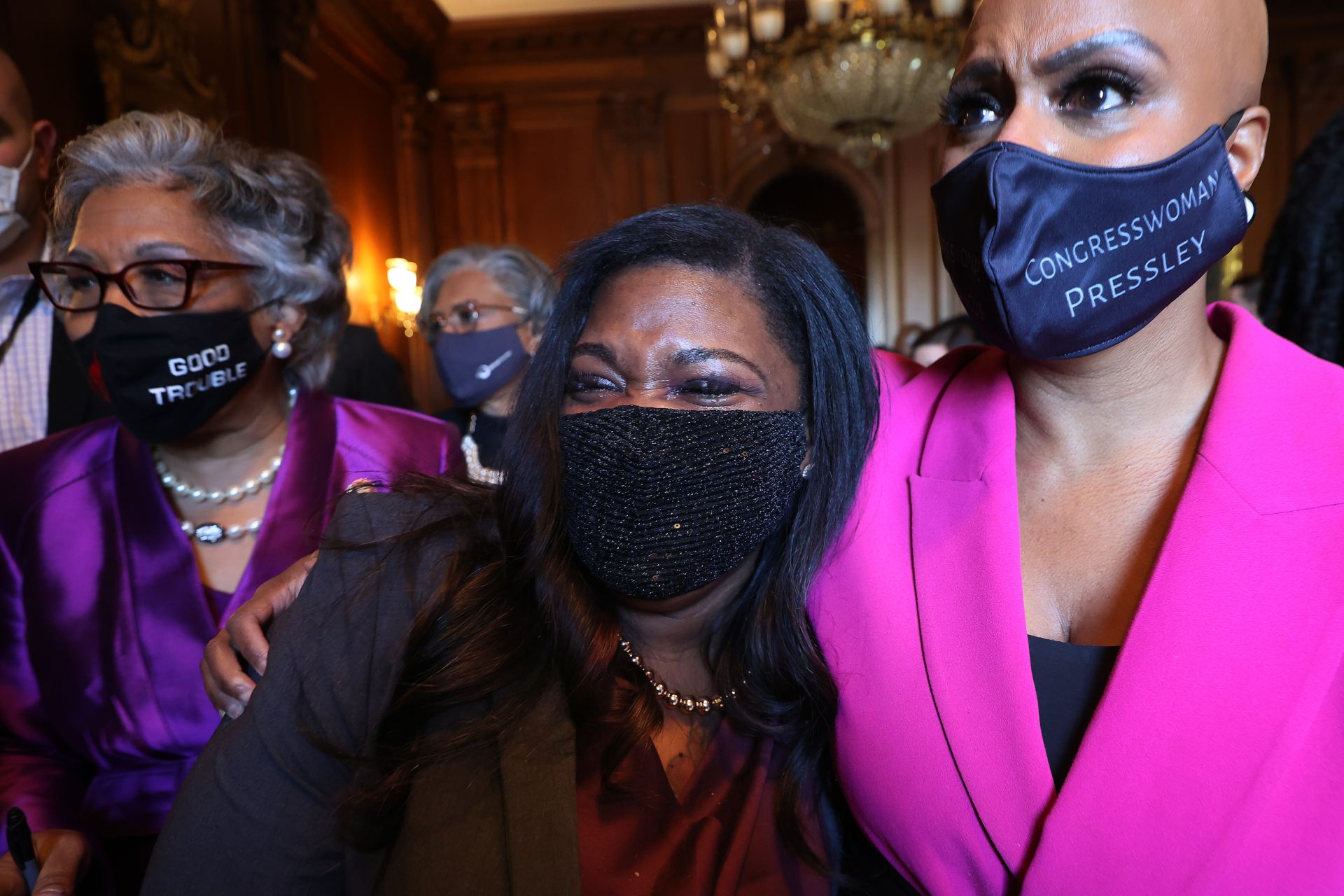How do phenotypic factors like hair texture and skin tone affect the candidacies and experience of Black women politicians in the U.S.? How do voters opine on those differences, considering the dominant Eurocentric standards of beauty? What is the importance of official action like the proposed federal CROWN Act (“Creating a Respectful and Open World for Natural Hair”) as well as similar legislation at the state level?
Scholar Nadia E. Brown studies the politics of Black women’s appearance, and she joined Riada Asimovic Akyol as the guest in Episode 10 of the Wider Angle podcast to discuss her fascinating research on the subject.
In this conversation, she sheds light on different associations attached to Black hair as well as historical legacies that have shaped the contemporary scrutiny that Black women face in the U.S. When in public life, Black women’s bodies are viewed through the prism of colorism and hair texture preferences stemming from the history of anti-Blackness in the U.S.
“To deny the racist, sexist and patriarchal underpinnings that have created a culture in which Black women are both demeaned and fetishized on the basis of their physical appearances would be shortsighted,” Brown writes in her book “Sister Style: The Politics of Appearance for Black Women Political Elites,” co-authored with Danielle Casarez Lemi.
Using various examples including Kamala Harris, Michelle Obama, Stacey Abrams, Ayanna Pressley and Lauren Underwood, Brown argues why it is wrong to assume that Black women political elites have the same options or experiences. She also points to intra-group nuances and different factors like skin tone and hair texture or style that greatly affect how voters evaluate them. But for Black women in American politics, race and gender do not mean automatic “double disadvantage,” Brown clarifies. She explains how Black women make sense of the framework in which they operate and how they “are making [their agency] work to their advantage.”
There have been vast generational differences that Brown noted between “millennial and boomer/silent generation Black women political elites” in terms of acceptable or desired ways of self-presentation or styling Afro-textured hair. Nevertheless, a “hair paradox” remains for Black women, and Brown describes research showing that even when they appreciate natural hair, “they have implicit bias against textured hair.”
Listen to the conversation to hear the wider angle of differences among Black women politicians in navigating their choices. Learn how they consider biological, historical or societal constraints and use their agency for strategic appearances in public life. It is available wherever you listen to podcasts or on YouTube here:
“Wider Angle” is produced and hosted by Riada Asimovic Akyol.


